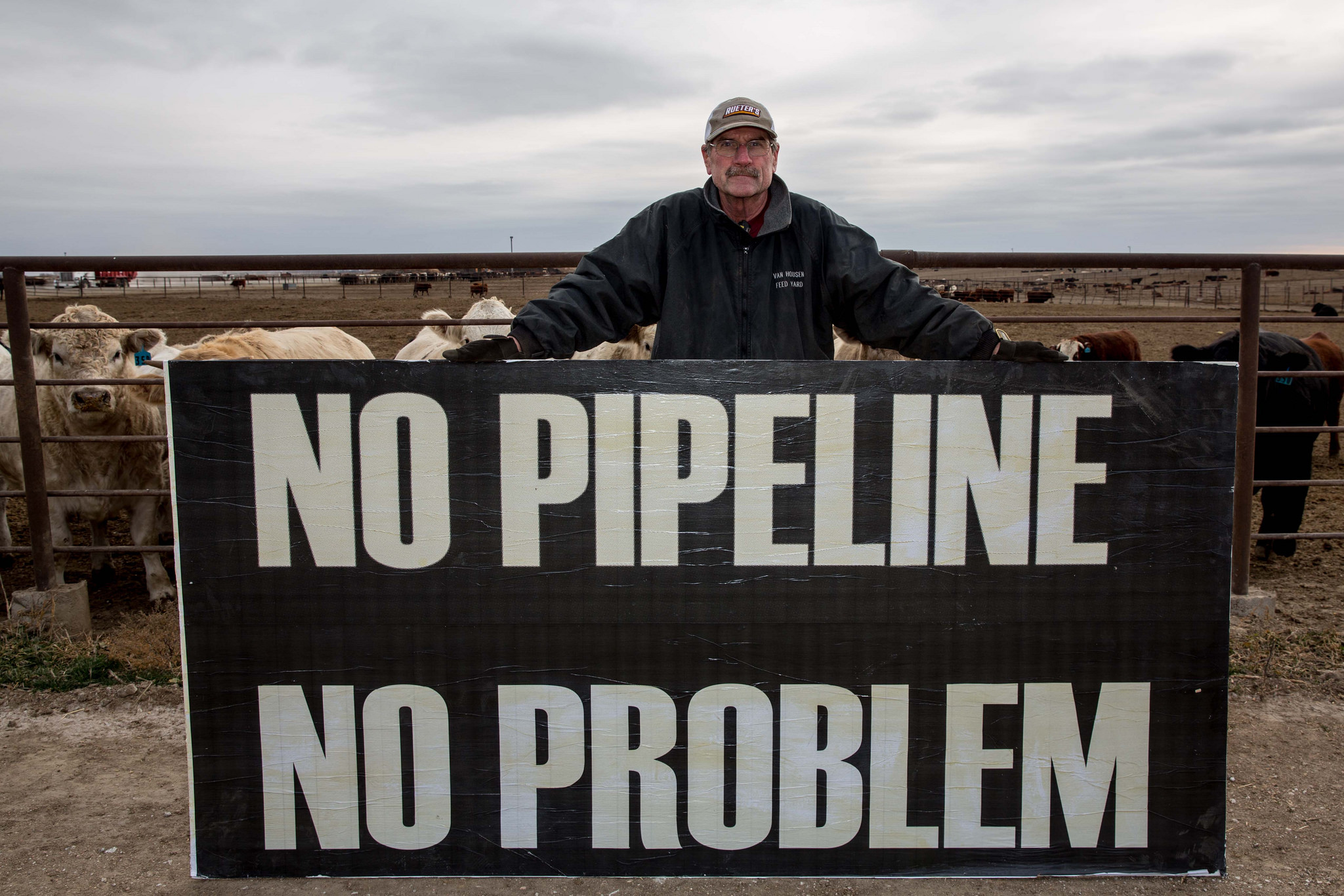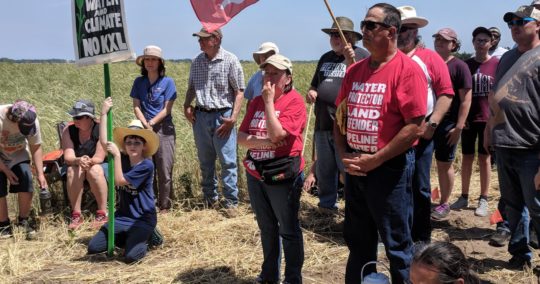

The U.S. State Department is now accepting public comments until Nov. 18 on a new draft Supplemental Environmental Impact Statement (SEIS) for TransCanada’s proposed Keystone XL pipeline project.
(Note: We encourage affected landowners living on the proposed KXL route to submit hand-written letters including your public comments on the pipeline directly to the State Department.)
Mailing address:
Ross Alliston, Keystone XL Program Manager
Office of Environmental Quality and Transboundary Issues
U.S. Department of State
2201 C Street NW
Washington, DC 20520
The State Department’s draft report purports to analyze, among other things, the new “Mainline Alternative Route” through Nebraska. But in reality, it merely collects some slapdash surveys conducted last summer on the new route. That route had never over the past ten years undergone any substantial review of environmental or cultural resources, such as Tribal sacred sites, before it was approved by the Nebraska Public Service Commission in November 2017.
This Trump State Department-led review also furthers an outrageous violation of the due process rights of landowners on the recently chosen “alternative” route in Nebraska, who never knew they were facing a tar sands pipeline across their farms, and had no opportunity as impacted landowners to object in any of the public hearings or official reviews during the Public Service Commission process.
Of critical importance, the draft report also concedes that there would be adverse impacts to the land on the Tanderup Farm in Neligh, Nebraska, where allies including the Ponca Nation of Oklahoma and Ponca Tribe of Nebraska along with the Cowboy and Indian Alliance have grown Ponca Sacred Corn for the past six years. Last summer, the Tanderup family deeded the land where the corn is grown, which also lies on the historic Ponca Trail of Tears — and is on the proposed Keystone XL route — back to the Ponca Nation of Nebraska. The draft SEIS acknowledges that construction of the pipeline would disturb this sacred land.
The Keystone XL pipeline was a bad idea when it was proposed 11 years ago, and it remains a bad idea today. TransCanada bullies landowners. TransCanada ignores meaningful consultation with Tribal Nations. TransCanada tries to buy off County Board members. TransCanada minimizes the real risks to our water, and endangered species like the Whooping Crane and the burying beetle.



